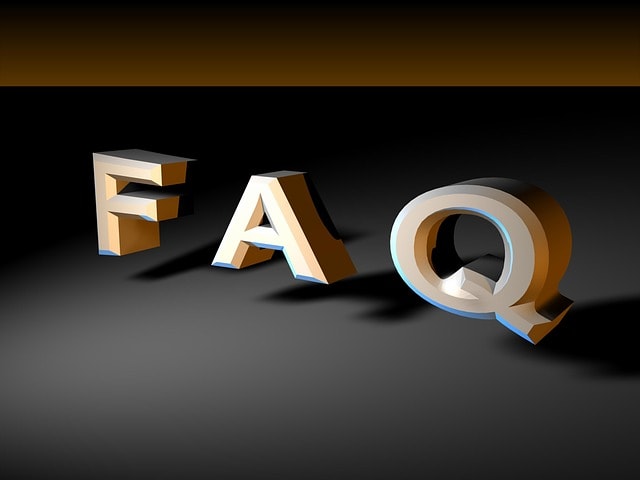Starting or expanding a business requires capital, and one of the most common ways to get this money is by applying for a bank loan. Getting a bank loan for a business can seem complicated, especially if it’s your first time.
But don’t worry—we’ll walk through the entire process step by step to make it easy to understand. Whether you’re a small business bank loan, looking for a small business loan, or a larger business loan, this guide will help you explain “How to Get a Bank Loan for a Business.”

- Amount = $5,000 to $500,000
- Loan Term = 4 to 24 months
- Interest Rate = 1.11%
4.8
editorial team. We score based on factors
that are helpful for consumers, such as
how it affects credit scores, the rates and
fees charged, the customer experience,
and responsible lending practices.
- Min. Amount = $10,000
- Max Amount = $500,000
- APR = Factor rate starting at 1.11%
4.8
editorial team. We score based on factors
that are helpful for consumers, such as
how it affects credit scores, the rates and
fees charged, the customer experience,
and responsible lending practices.
Best for large business loans

- Loan Amount = $25,000 - $3,000,000
- $10,000 in Monthly Rev
- No minimum credit score requirement
4.9
editorial team. We score based on factors
that are helpful for consumers, such as
how it affects credit scores, the rates and
fees charged, the customer experience,
and responsible lending practices.
Best for large business loans

- Min Amount = $5,000 - 1,500,000
- APR range Not disclosed
- Minimum Credit Score 570
4.7
editorial team. We score based on factors
that are helpful for consumers, such as
how it affects credit scores, the rates and
fees charged, the customer experience,
and responsible lending practices.
Best for Small business loans

- Min Credit Score = 620
- Loan Amount = $10K-$5M
- Term = 6 months - 10 years
- APR = Variable
4.8
editorial team. We score based on factors
that are helpful for consumers, such as
how it affects credit scores, the rates and
fees charged, the customer experience,
and responsible lending practices.

- Check Your Eligibility
- Get $10K to $2M
- 24/7 Support
4.8
editorial team. We score based on factors
that are helpful for consumers, such as
how it affects credit scores, the rates and
fees charged, the customer experience,
and responsible lending practices.

- Amount = $10,000 to $1,000,000
- Factor Rate = Starting at 1.24
- Term = 2 to 12 months
4.7
editorial team. We score based on factors
that are helpful for consumers, such as
how it affects credit scores, the rates and
fees charged, the customer experience,
and responsible lending practices.

Related: Business Loan Partnership: 5 Best Financing Solutions for Your Business
What Is a Business Loan?
Before we discuss how to get a bank loan for a business, it’s important to understand what a business loan is.
A business loan is money that a financial institution lends to a business. The business must repay the loan amount along with interest over a certain period of time.
Loans can be used for a variety of purposes, such as purchasing equipment, hiring employees, or expanding the company.
Why Do You Need a Business Loan?
Businesses often need loans for different reasons. Some businesses may need money to start up, while others need cash for day-to-day expenses, also known as working capital.
Loans are also useful for real estate purchases, equipment purchases, or business expansion. In every case, having a clear idea of why you need the loan is important before applying.

Related: Best Business Loans for small businesses in Ohio 2024
What are the types of bank loans for small businesses?
If you are interested in finding many small business owners’ loan options these loan programs are the most popular types.
There are different types of business loans available multiple lenders, and choosing the right one depends on your specific, business financing needs.
Term Loans:
These are traditional bank loans where you borrow a lump sum and repay it over a fixed period of time with interest. They are great for larger purchases.
Line of Credit:
This type of loan gives you access to funds as needed. You only pay interest on the amount you use.
SBA Loans:
Loans backed by the Small Business Administration (SBA) are often easier to qualify for and offer competitive interest rates.
Unsecured Business Loans:
These loans don’t require you to offer collateral, but they may come with higher interest rates because of the lender’s risk.
Related: Get Loan For Business

Secured business line of credit
In order to help pay for the operating costs of commercial mortgage, you are required to pay the line of credit by way of a blanket liens to your assets and a certificate of deposits. The maximum loan amount is $250,000 Interest rate: From 9.5%.
Unsecured Business Loans: A Risky Yet Accessible Option
If you’re looking for a way to get a business loan without risking your personal or business assets, you might consider unsecured business loans. Unlike traditional loans requiring collateral, unsecured loans don’t demand assets to back the loan.
Sounds great, right? But here’s the catch: because there’s no collateral, lenders view these loans as riskier, so they often come with higher interest rates and stricter repayment terms. If you’re confident in your cash flow and have a strong credit score, this could be a fast way to get the money you need—but proceed with caution.
What are the requirements for getting a business loan?
Banks need your business credit score to be considered when making business loans. Almost all banks use their own loan applications. Some schools offer applications online, although some require filling in paper forms.
The bank can choose the preferred process for applications, depending upon the amount and the loan you seek. The bank will also need to consider what the required prerequisite is to be considered for successful business loan application, and acceptance. There are numerous factors that can affect a potential grant, so check first.

Related: Startup Business Loans for Bad Credit Guaranteed
Alternatives to bank loans
The financing of commercial real estate loans for small businesses can vary according to the company. Various types of loans offer different conditions that may be more favourable for you in terms of financial situation, as opposed to other loan types that do.
Banks are not the only alternative to borrowing. You may work with another lender to finance your needs. Alternative lending and financing options are available to businesses where traditional lending cannot be obtained. Three alternative loans can be considered.
Steps to Get a Bank Loan for a Business
Now, let’s walk through the steps to getting a bank loan for business lines to finance a small business together.
1. Assess Your Business Needs
First, you must figure out how much money you need and why. Knowing the loan amount will help you pick the right type of loan. Also, understanding the purpose, whether it’s for working capital or equipment purchases, will guide the lender’s decision.
2. Check Your Credit Score
Your business and personal credit scores are important when applying for a business loan. Lenders will review your personal credit history and your various business lines of credit to determine if you’re a reliable borrower.
- Business Credit Score: This reflects how well your business manages debt.
- Personal Credit Score: If you’re just starting a business, the lender may rely more on your personal credit.
3. Gather Business Documentation
Before applying for a loan, you’ll need to gather important documents such as:
- A solid business plan shows how your business operates and how you plan to use the loan.
- These include balance sheets, income statements, and cash flow statements.
- Both business and personal tax returns for the past two to three years are usually required.
4. Research Different Lenders
There are many different lenders to choose from, including traditional banks, online lenders, and alternative lenders. Some lenders, like Bank of America, are popular for business loans, while others specialize in small businesses or SBA loans. Compare interest rates and terms to find the best loan for your needs.
- Traditional Banks: These are well-established and offer competitive interest rates.
- Online Lenders: These lenders often have faster approval processes but may charge higher interest rates.
- Alternative Lenders: For those with poor credit or special loan needs, alternative lenders offer flexible options.
5. Understand Loan Qualifications
Every lender has its own set of qualifications for approving a business loan. Common requirements include:
- Credit Scores: Both business and personal credit scores are crucial.
- Business Age: Some lenders only offer loans to businesses that have been operating for at least two years.
- Revenue: Lenders may require proof that your business generates enough revenue to repay the loan.
6. Prepare a Strong Business Plan
Your small business financing plan is one of the most important documents when applying for a loan. It should clearly show how your small business owners will make money and how you plan to repay the loan. A well-prepared plan will improve your chances of getting approved.
Related: B & I Loans: A Complete Guide for Businesses

7. Compare Interest Rates
Lenders offer different interest rates, so shopping around is important. Even a small difference in interest rates can save you money over time. Look for competitive, fixed interest rate rates that suit your own small business that’s financial situation.
8. Complete the Loan Application
Once you’ve chosen a lender, the next step is to complete the loan application. This typically includes personal information, business information, the loan amount requested, and how you plan to use the money. Make sure to double-check everything before submitting.
9. Wait for Credit Approval
After submitting your application, the lender will review your credit score, business documentation, and financial situation to determine your credit approval. This approval process can take anywhere from a few days to several weeks, depending on the lender.
10. Review Loan Terms
If you’re approved for the loan, the lender will send you the loan terms. It’s important to review these carefully. Pay attention to the interest rates, monthly payments, and loan terms to ensure they align with your expectations.
11. Accept the Loan Offer
Once you’ve reviewed the terms and you’re satisfied, you can accept the loan offer. The lender will then provide you with the loan funds, either in a lump sum, monthly payment, or through a line of credit, depending on the type of loan.
12. Use the Funds Wisely
After you receive the funds, use them for the intended purpose. Whether it’s purchasing equipment, expanding your business, or covering operational costs, make sure the loan is used wisely to grow your business.

Related: Best Self Employed Business Loans to Fuel Your Success in 2024
13. Keep Up With Payments
Now that you have the loan staying on top of your monthly payments is crucial. Missing payments can harm your credit score and put your business at risk. Set up reminders or automatic payments on monthly payments to ensure that you always make payments on time.
14. Build Your Business Credit
Making consistent payments on your small business loan will help build your business credit. Over time, a good business credit score can help you qualify for larger loans with better terms.
15. Refinance If Needed
If your business grows or your financial situation changes, you may want to consider refinancing the loan. This could give you better interest rates or more flexible terms better suited to your business debt and financing new needs.
Getting a bank loan for a business may seem daunting, but it becomes more manageable when broken down into steps. Start by understanding the loan type and why you need it. Be prepared by checking your credit score and gathering the necessary documents.
Research different lenders to find the best interest rates, and make sure to provide a strong business plan. Once you get the loan, use the funds wisely and keep up with your payments to build your small business’s financial health.

- Amount = $5,000 to $500,000
- Loan Term = 4 to 24 months
- Interest Rate = 1.11%
4.8
editorial team. We score based on factors
that are helpful for consumers, such as
how it affects credit scores, the rates and
fees charged, the customer experience,
and responsible lending practices.
- Min. Amount = $10,000
- Max Amount = $500,000
- APR = Factor rate starting at 1.11%
4.8
editorial team. We score based on factors
that are helpful for consumers, such as
how it affects credit scores, the rates and
fees charged, the customer experience,
and responsible lending practices.
Best for large business loans

- Loan Amount = $25,000 - $3,000,000
- $10,000 in Monthly Rev
- No minimum credit score requirement
4.9
editorial team. We score based on factors
that are helpful for consumers, such as
how it affects credit scores, the rates and
fees charged, the customer experience,
and responsible lending practices.
Best for large business loans

- Min Amount = $5,000 - 1,500,000
- APR range Not disclosed
- Minimum Credit Score 570
4.7
editorial team. We score based on factors
that are helpful for consumers, such as
how it affects credit scores, the rates and
fees charged, the customer experience,
and responsible lending practices.
Best for Small business loans

- Min Credit Score = 620
- Loan Amount = $10K-$5M
- Term = 6 months - 10 years
- APR = Variable
4.8
editorial team. We score based on factors
that are helpful for consumers, such as
how it affects credit scores, the rates and
fees charged, the customer experience,
and responsible lending practices.

- Check Your Eligibility
- Get $10K to $2M
- 24/7 Support
4.8
editorial team. We score based on factors
that are helpful for consumers, such as
how it affects credit scores, the rates and
fees charged, the customer experience,
and responsible lending practices.

- Amount = $10,000 to $1,000,000
- Factor Rate = Starting at 1.24
- Term = 2 to 12 months
4.7
editorial team. We score based on factors
that are helpful for consumers, such as
how it affects credit scores, the rates and
fees charged, the customer experience,
and responsible lending practices.

Frequently Asked Questions
What credit score is required to get a business loan?
Most lenders require a personal credit score of 600 or higher, but the exact requirement varies depending on the lender and type of loan.
Can I get a business loan with bad credit?
Yes, you can still get a business loan with bad credit, but it may be from alternative lenders and come with higher interest rates.
How long does it take to get a business loan?
The time it takes can vary. Traditional banks may take several weeks, while online lenders can approve and fund loans in just a few days.
What documents are needed to apply for a business loan?
Common documents include your business plan, financial statements, tax returns, and bank statements.
Is it better to go with a traditional bank or an online lender?
It depends on your needs. Traditional banks often have lower interest rates but stricter requirements, while online lenders offer faster approval with potentially higher rates.
Is it hard to get a business loan through a bank?
It depends on various factors like your business credit score, personal credit score, and how well-prepared your business loan application itself is. If you have a good credit score, a solid business plan, and enough business assets, the process becomes much easier. However, without these, it may be challenging to secure a loan from a traditional bank.
Can I borrow money from a bank for business?
Yes, you can! Banks offer various business loan and financing options now, with such loans as term loans, lines of credit, and SBA loans. As long as you meet the bank’s loan qualifications, such as having a strong credit score, a good cash flow, and clear business documentation, you can borrow money for your business.
How do I ask for a business loan from a bank?
To ask for a business loan from a bank, start by preparing a detailed business plan and financial projections. Make sure your personal credit score and business credit are in good shape.
Then, gather all necessary documents like tax returns, bank statements, and your credit report. Schedule a meeting with the bank’s loan officer, and present your case confidently. Be ready to answer any questions they may have about your business’s finances and future growth.
Do banks give start-up small business loans now?
Yes, banks do offer start-up small business loans now, but they are generally more cautious when lending to new businesses. If you are a start-up small business administrator, you’ll need a very strong business plan, a solid personal credit history, and possibly personal assets to secure the loan.
SBA loans can also be a good option for new businesses, as they are partially backed by the federal government, reducing the lender’s risk.


 Read More
Read More 





2 Responses